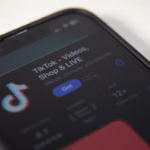Businesses are exploring innovative models to enhance customer loyalty and drive revenue, especially in cannabis retail. Two prominent approaches have emerged: subscription-based services and on-demand purchasing. Each offers distinct advantages, but which model truly fosters deeper customer loyalty in the cannabis industry?
Subscription Models: Building Predictability and Engagement
Subscription services in the cannabis sector provide customers with regular deliveries of products, often tailored to individual preferences. This model offers several benefits:
- Consistency and Convenience: Regular deliveries ensure that consumers have a steady supply of their preferred products, reducing the need for frequent store visits. This convenience can enhance customer satisfaction and loyalty.
- Personalization: Subscription services often allow customization based on customer preferences, leading to a more personalized experience. Over time, this can strengthen the customer-retailer relationship.
- Higher Average Order Value: Studies have shown that cannabis subscription services tend to have a higher average order value compared to other retail models, indicating increased customer commitment and spending.
For instance, Oasis Cannabis implemented a Subscription Loyalty Service that resulted in over 300 subscriber visits and more than $20,000 in revenue within a month. This success underscores the potential of subscription models to boost both customer engagement and sales.
On-Demand Purchasing: Flexibility and Immediate Gratification
On-demand purchasing caters to consumers who prefer flexibility and immediate access to products. This model aligns with the traditional retail approach and offers its own set of advantages:
- Immediate Access: Customers can purchase products as needed, which is ideal for those who prefer spontaneity or are trying new products.
- Lower Commitment: Without the need for ongoing subscriptions, consumers can make purchases without long-term commitments, appealing to casual or first-time users.
- Broad Market Appeal: On-demand services can attract a wider audience, including tourists or occasional users who may not require regular deliveries.
However, this model may face challenges in fostering long-term loyalty. One report indicated that fewer than one in five customers at various cannabis retailers returned for a second visit, highlighting the difficulty in retaining customers without structured loyalty programs.
Customer Loyalty: Subscription vs. On-Demand
When evaluating customer loyalty, subscription models appear to have an edge. The structured nature of subscriptions encourages repeat interactions and allows retailers to gather data on customer preferences, enabling more personalized experiences.
Moreover, loyalty programs integrated with subscription services can further enhance retention. Offering exclusive discounts, early access to new products, or personalized promotions can incentivize subscribers to remain engaged with the brand.
In contrast, on-demand purchasing requires additional strategies to build loyalty, such as implementing tiered loyalty programs or personalized marketing campaigns. While effective, these methods may not achieve the same level of consistent engagement as subscription models.
Industry Preference: A Hybrid Approach
While subscription models show promise in cultivating customer loyalty, the cannabis industry benefits from a hybrid approach that combines the strengths of both models. By offering subscription services alongside on-demand purchasing options, retailers can cater to a broader customer base.
This dual strategy allows businesses to provide flexibility for casual users while fostering deeper relationships with regular customers through subscriptions. Additionally, integrating loyalty programs across both models can enhance overall customer retention and satisfaction.
Final Thoughts
In the competitive cannabis retail market, fostering customer loyalty is paramount. Subscription models offer structured, personalized experiences that can lead to higher retention rates and increased revenue. However, on-demand purchasing remains essential for attracting and accommodating a diverse customer base.
By adopting a hybrid approach that leverages the advantages of both models and integrates comprehensive loyalty programs, cannabis retailers can create a robust framework for sustained customer engagement and business growth.







